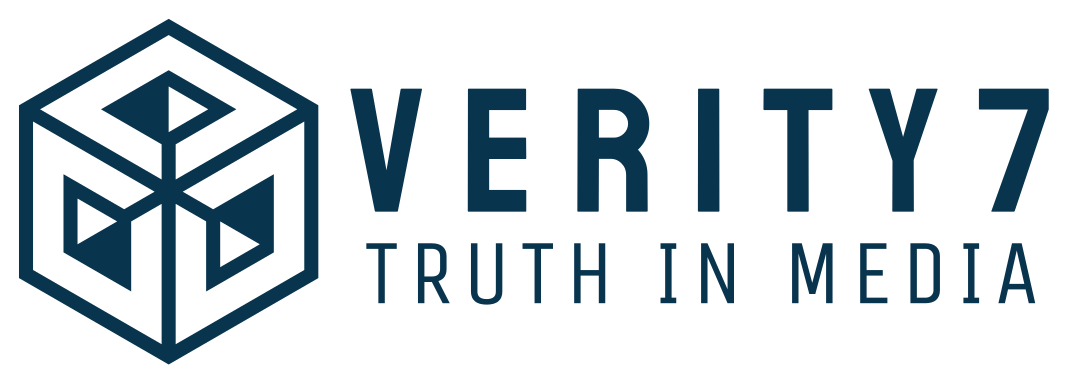At Verity7 we recently we ran a modest survey about disinformation in social media and beyond. Our survey received about twenty responses, and gives us an interesting sample of what people think about disinformation and its impacts. Verity7 is an anti-disinformation educational organization founded in 2023.
We found that the majority of respondents felt that disinformation in social media is contributing meaningfully to extremism in the United States. Fully 85% of respondents felt that disinformation has led to extremism either “a lot” (39%) or “a great deal” (44%).
Nearly 90% of respondents said disinformation has increased “a lot” or “a great deal” in the past five years, and we would have to agree based on anecdotal evidence. The rapid erosion of civil discourse in the US has not, perhaps, taken place purely by accident. It may have been pushed along by significant shoves from disinformation sources, especially in the form of disinformation distributed to vulnerable populations via social media. Indeed, 70% of respondents said disinformation in social media has contributed to the problem “a great deal”.
However, when asked if they felt the company they worked at might become the victim of a disinformation attack, 45% of respondents said they felt the threat was “a little bit” or “none at all”. In fact, as many as 33% said they felt their company was threatened “not at all”.
This points up some important dynamics in the fight against disinformation.
Disinformation is a weapon wielded by cynical manipulators looking to impact the national dialogue, national elections, and in the end, national policy. Disinformation historically has been a weapon of war. It has often been said that in war, the first casualty is truth. In a nation where disinformation about stolen elections (and more) has become almost coin-of-the-realm, what does that indicate about our national prospects?
Are we already at war and many of us just don’t know it yet?
Are there large constituencies prepared to vote an insurrectionist into high office? If that anti-democratic candidate wins, does Joe Biden just hand over the keys to democracy next year and say “we had a good run”?
Is that the plan of the cynical manipulators? Have they at last rounded up enough low-information voters to install a chief executive in the US who is committed to fascism, who says the US is “a joke”, and who says he will become a “dictator on day one”? There are flies in that ointment, of course: for even after Trump opponent Nikki Haley dropped out of the GOP primaries after Super Tuesday, it remains that exit polling showed that a good 20% of the total GOP electorate says they will not vote for Trump in the fall. On its own, this could spell doom for the soggy-bottomed real estate mogul.
Disinformation contributed mightily to Trump’s popularity, and continues to do so today. The candidate is a machine that spews lies in bulk. It is possible to hear him blather for half an hour and not say one true thing—not an easy thing to accomplish. Yet tech-aware audience-targeters take this engine of lies and amplifies it, via social media messaging, to a maximum pitch. The result is that millions of voters are prepared to back a presidential candidate who ostensibly works for a foreign adversary in Moscow.
We hardly needed to be reminded that disinformation is rampant. But what may come as a surprise is that it’s coming from all directions these days. Many so-called progressives these days seem fixated on Israel’s over-the-top response to a terrible terror strike on October 7, but are entirely unwilling to talk about how it can be somehow okay for rapists to attack a music festival. Many on the left talk as if they want to pretend the vicious attack never happened.
I am not here to defend the policies of a right wing Knesset, nor to suggest the fighting in Gaza ought not be subject to a cease-fire. But even on October 7, before Israel took any action at all against Gaza, many progressives cheered the Hamas attack on the music festival. They cheered that women were raped, tortured and murdered by their Hamas rapists. They cheered that children were burned and beheaded. They cheered that men were forced to watch the rape and murder of their children and their wives. With this, they debased themselves in a way that many would say is unrecoverable. And they continue to do deny the sexualized cruelty (and for some, the existence) of these acts, despite ample evidence that those they ostensibly support include sadistic rapists and murderers. One is struck by the notion that, had the victims been non-Jewish, these same progressives would almost certainly have condemned the rapes and murders as the debased atrocities that they, in fact, were.
At the same time, many Trump supporters seem bent on destroying democracy on day one. “I am your retribution”, says their candidate. Retribution for what? The entire argument from the Trump camp is one monster lie after another. With help from abroad, Trump and his minions have been able to convince millions that certain total lies are true, such as: Obama is calling the shots; Joe Biden is a criminal mastermind; the 2020 election was stolen by lesbians and brown people; E. Jean Carroll is a liar for saying Trump assaulted her; Trump declassified nuclear secrets merely by thinking about them—and much, much more.
But none of these lies have focused on any particular company. And as we already know, companies are not, in general, concerned with the body politic. They are looking, as they must, to their own bottom lines. And while reputation management for companies is an old science, anti-disinformation management is a newcomer and not very well accepted as a need in corporate offices. According to the survey, most companies do not have any programs in place to protect their brand or their employees from disinformation.
Perhaps they don’t have those programs because their employees in general seem to be pretty confident they can spot disinformation when they see it—and maybe they can! Nearly 100% of respondents said they felt confident they could spot disinformation at least a moderate amount of the time, with about 68% saying they felt so “a lot” or “a great deal”. They may or may not be correct, but it’s notable how confident they are in any case.
The lack of urgency on the part of private companies is understandable. It’s really a rare instance that disinformation would target a single company in a meaningful way. In fact, we struggle to find more than a couple of historical instances where disinformation about a company was really much of a concern. And yet, disinformation continues to have an enormous negative impact on our politics and public opinion in the US.
What’s become clear is that there is wide acceptance of the importance of disinformation, and its negative influence. It is perceived as a large-audience, large-harm enterprise where the bulk of the effort is related not to hurting one particular company, but entire nations—especially a powerful, democratic nation like the US. This thinking, revealed in the survey, is borne out further by additional market research carried out by Verity7. Our method was to connect to as many likely candidates for our services via LinkedIn, thereby to discover what their thinking was about disinformation as it related to their own business. Our purpose was to see if there was a market for company-based anti-disinformation training. The findings were illuminating.
We found enormous, enthusiastic support for the idea of an anti-disinformation educational company, but at the same time a great many of these responses: “I love what you’re doing, but I am not a likely client”. This supports the theme developed by the survey: that social media is an important factor, that it ought to be combated, but that individual companies do not see themselves as potential victims nor do they see their role in training employees.
Clearly, getting the private sector to pay for training that is of national significance would run into serious roadblocks. But it’s too important a topic to simply throw up one’s hands and walk away.
Instead, based on the above findings, Verity7 has adjusted its approach to better address the general need for anti-disinformation awareness and anti-disinformation strategies and tactics. Our goal going forward will be to make disinformation itself a political topic, with an eye towards drastically reducing its presence in public life.
For more about our efforts to contain and minimize disinformation (especially in social media), visit our About page; and in September 2024 look for my book Army of Liars about Section 230, disinformation and artificial intelligence in politics and society.





